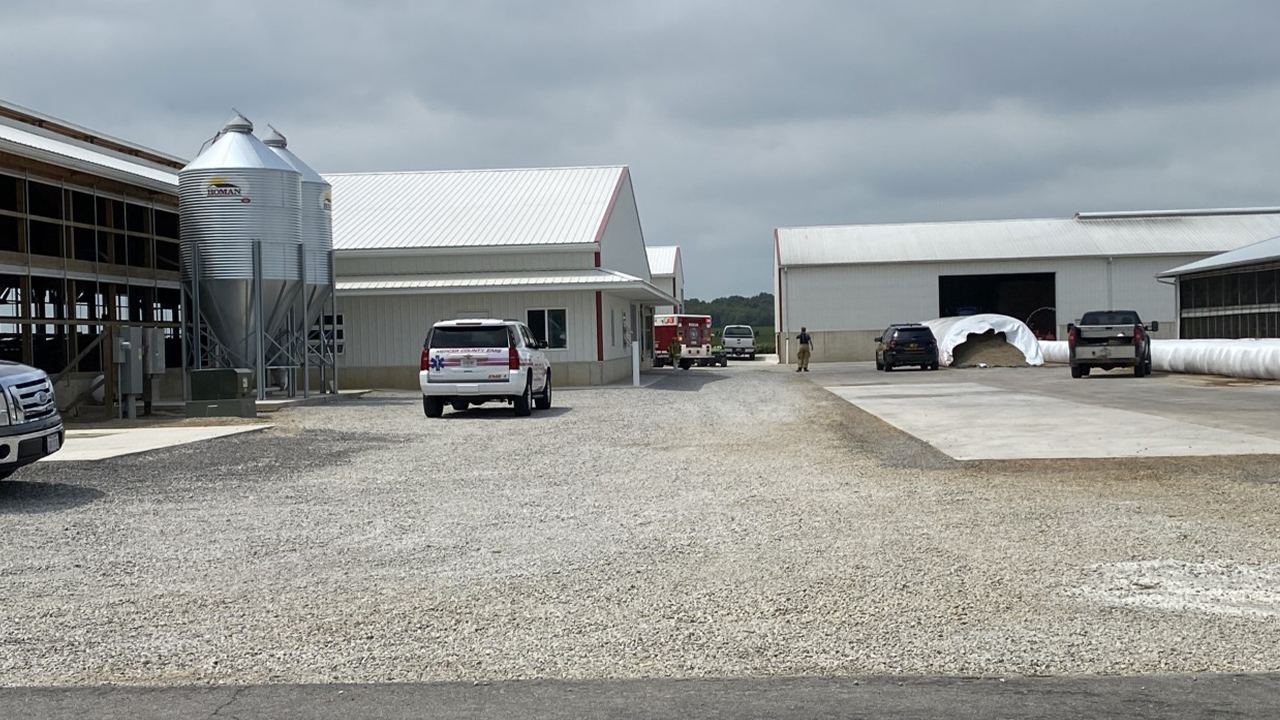
3 brothers die after being stuck in manure pit in Ohio
Authorities in Ohio say three brothers have died after they became stuck in a manure pit and were overcome by fumes.
Authorities in Ohio say three brothers have died after they became stuck in a manure pit and were overcome by fumes.

